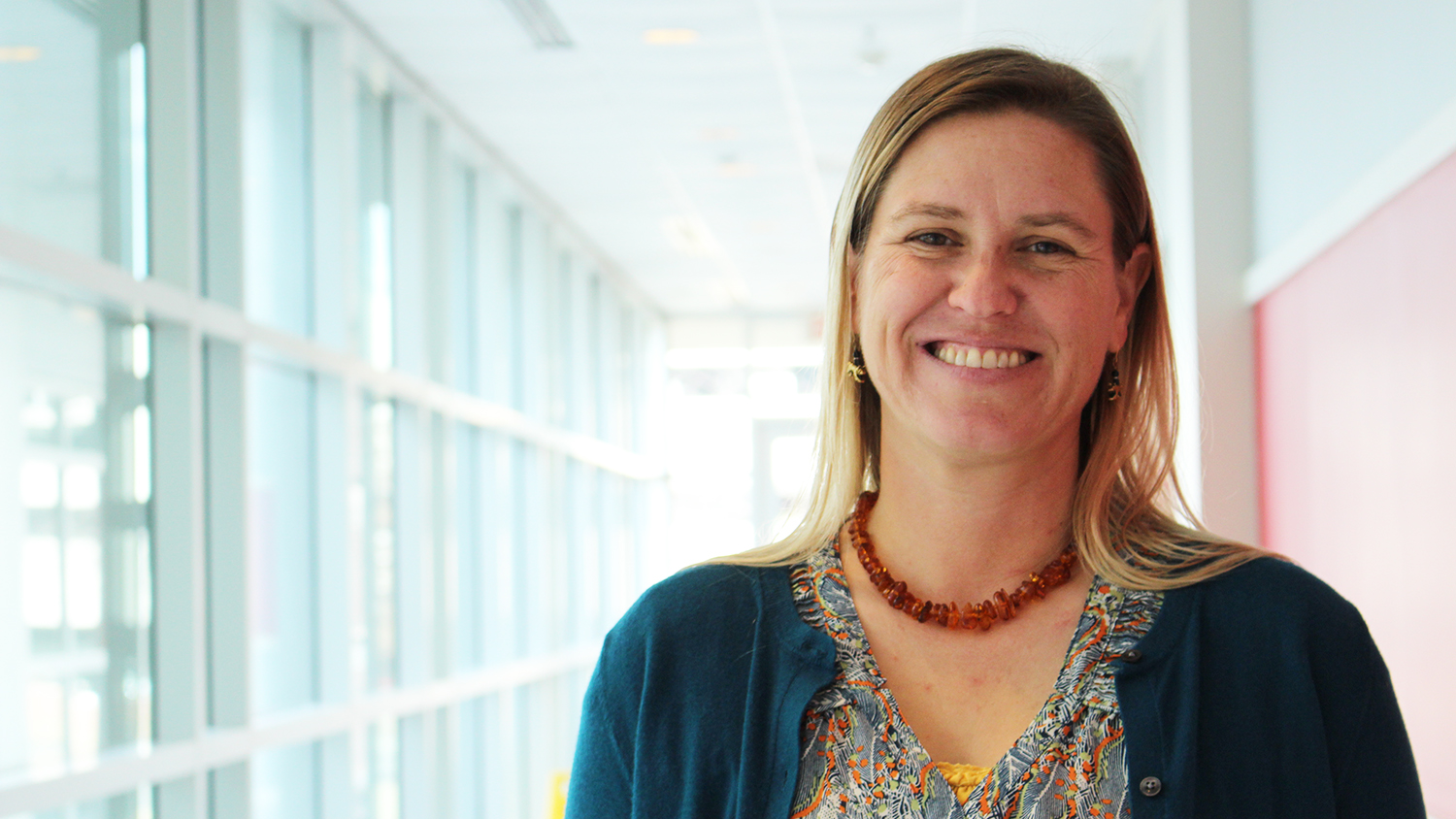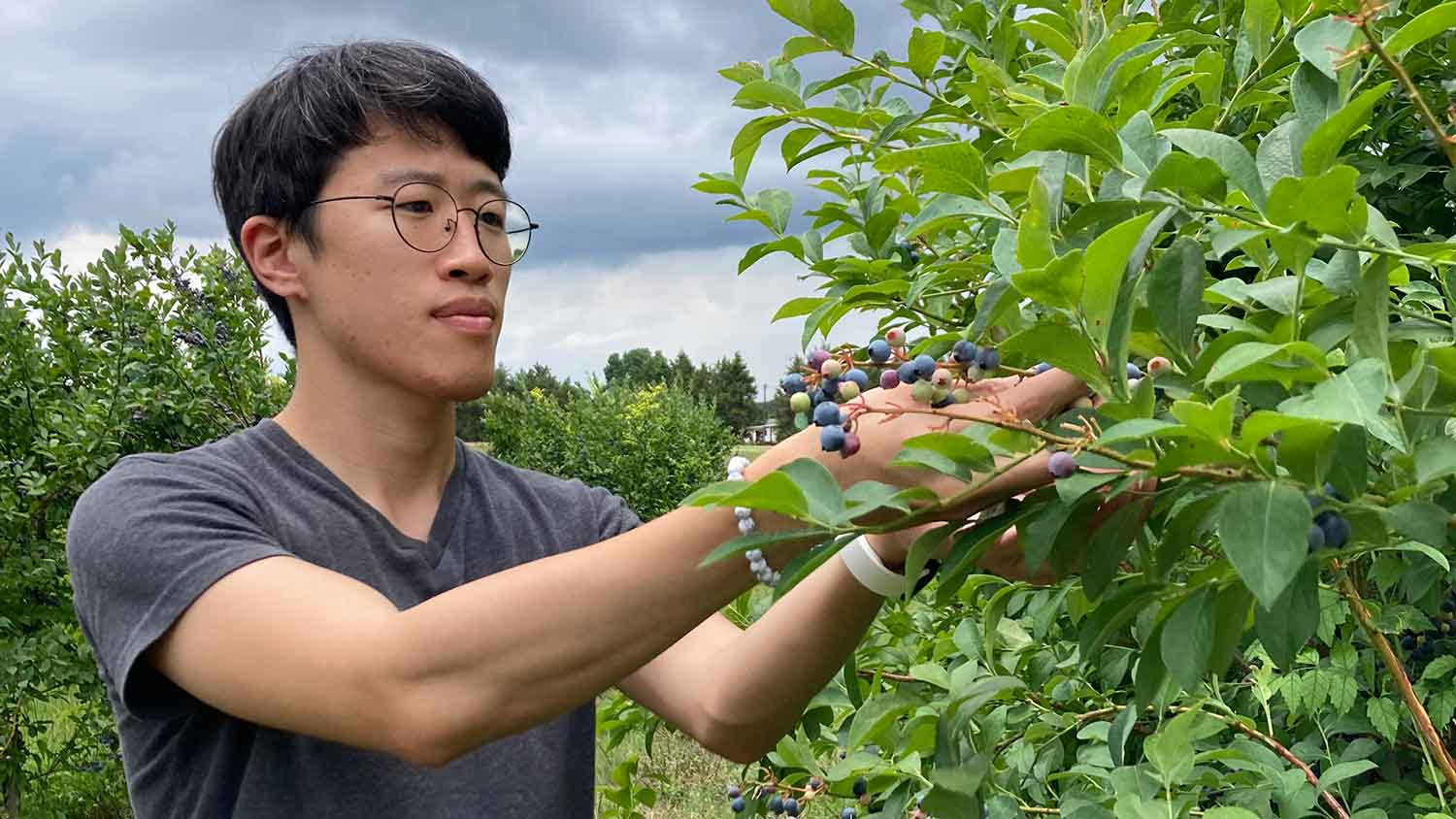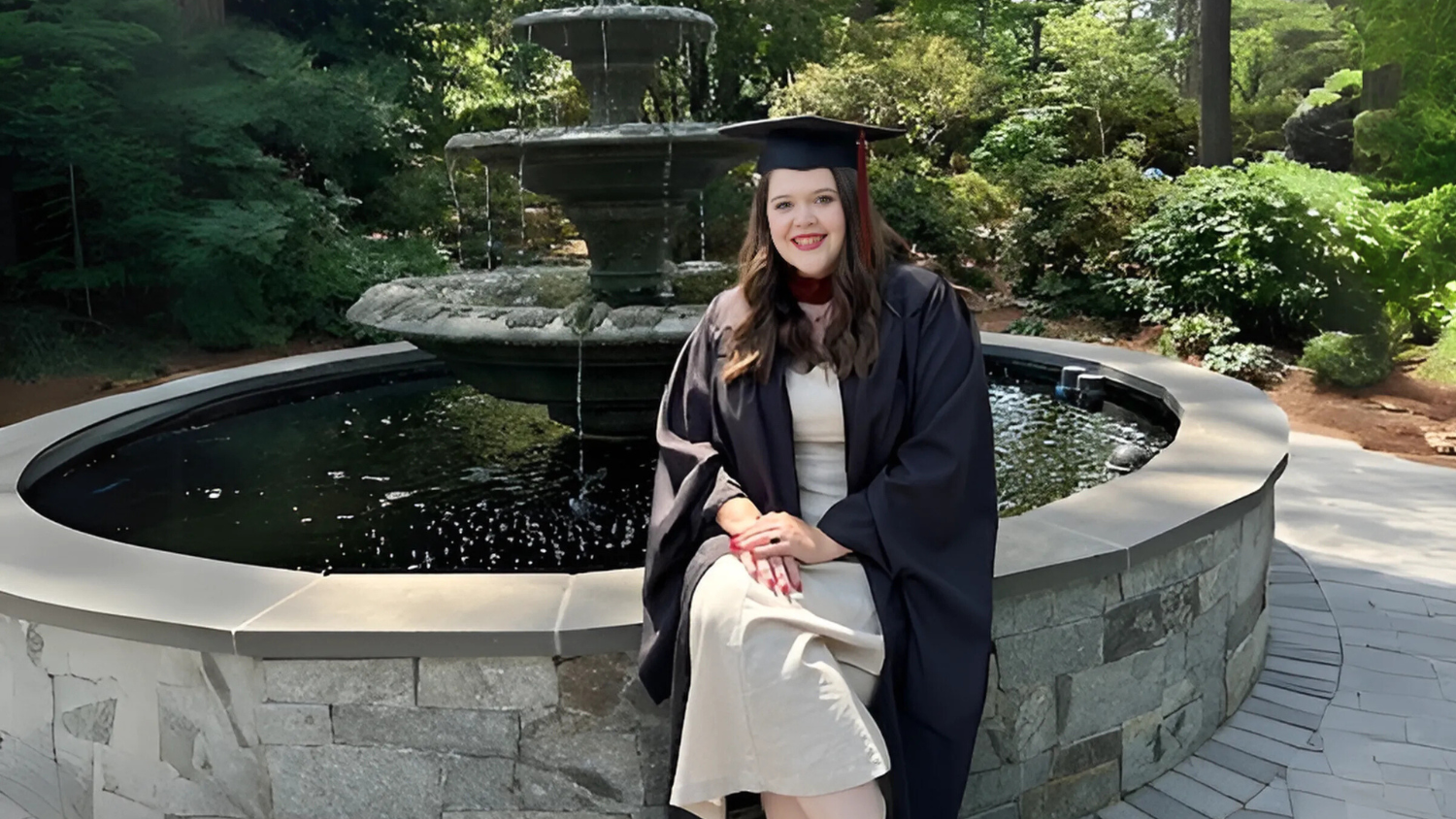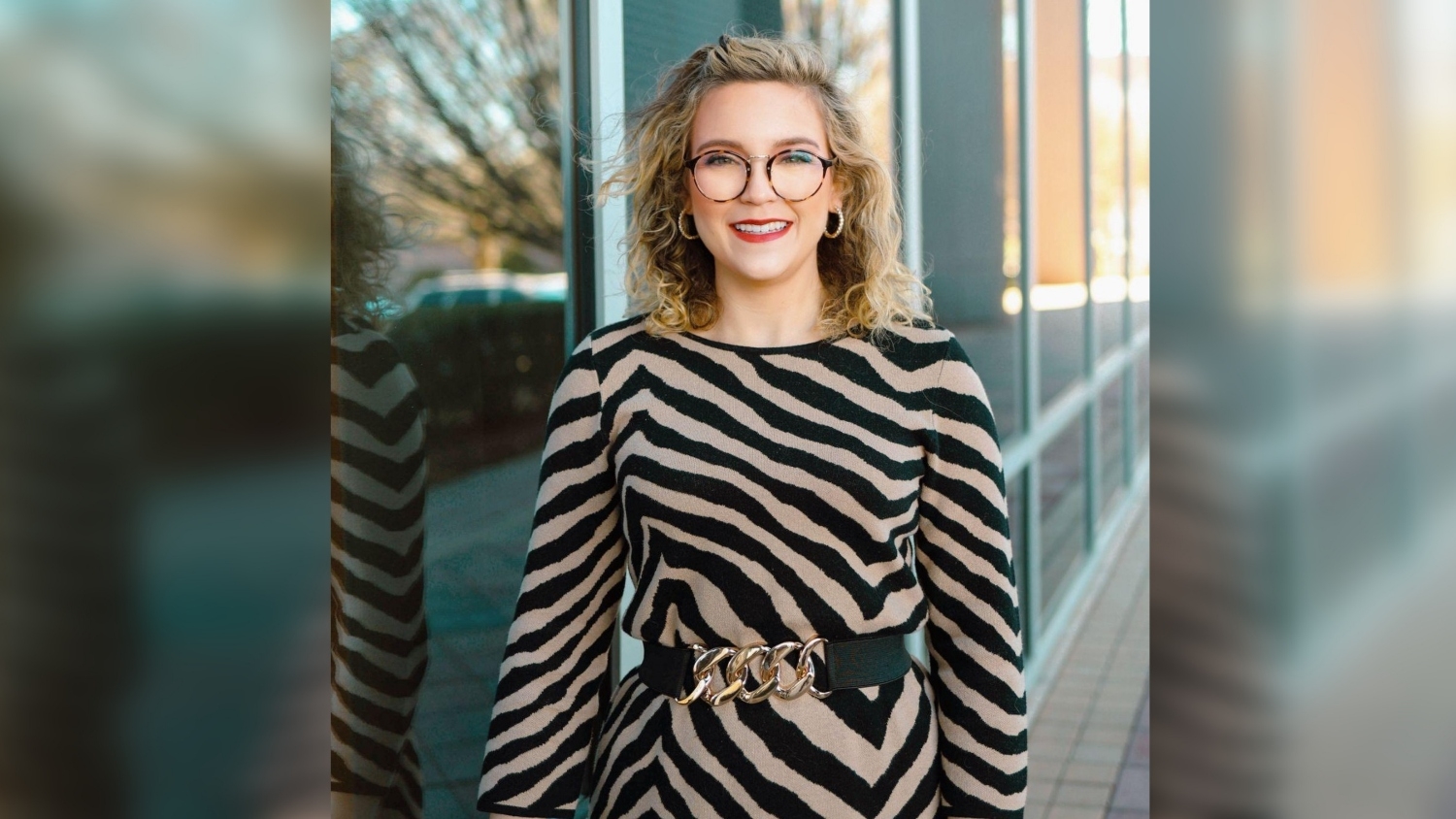Student Spotlight: Johnson Studies Farm-Level Food Loss

Millions of U.S. households struggle to have enough to eat, yet millions of tons of food are thrown into the garbage each year. And we don’t know how much edible food goes unharvested from farmers’ fields.
At NC State, a graduate student in horticultural science is shedding light on farm-level food losses and taking the first steps toward reducing them. After holding a number of jobs in the green industry, Lisa Johnson came to NC State to work on the food-waste issue as she pursues a Ph.D. with Dr. Nancy Creamer, co-director of the Center for Environmental Farming Systems.
How did you end up at NC State?
I have two degrees in horticulture from the University of Georgia (in Athens), but when you are interested in an academic career, it’s good to move around. I needed to be at a good agriculture school – and NC State is definitely that. My work falls under sustainable agriculture, and NC State is leading the Southeast in sustainable agriculture research, education and outreach.
Also I have two little boys, ages 2 and 5, and my parents live in North Carolina – so I had a lot of reasons to come to NC State.
How did you come to focus on the food-waste issue?
In 2010 or so, I was working in molecular physiology, trying to understand the genes involved in determining fruit size, when I realized that research on food waste seemed to be focused on either some portion of the supply chain or the consumer level.
The farm level was, and is, very much a mystery. You have a lot of independent producers who feed into multiple supply chains, so it’s a very convoluted portion of our food production system.
I had done some reading and contacted some people about it. I spoke to some of the major charitable organizations in the country and the federal organizations, and I asked, who is doing research in this area, and I kept getting the same response: nobody.
So what are you working on?
Mostly what I am focusing on are the crops that are edible but left unharvested in the growers’ fields. To better understand this, I am doing a series of interviews with growers – primarily growers who sell into the wholesale supply chain. They are larger growers who are subjected to very detailed specifications from their buyers, as far as shape, size, uniformity and things like that.
I realized early on that a grower making an estimate on their crop that they may harvest multiple times could have an imperfect view of what’s left behind. Their estimation may be different from what’s really happening. So I’ve developed protocols that are pretty easy to use in the field to measure what’s left behind in a sample area and then extrapolate from that to the whole field itself.
What I’m finding is that each field I get into is a little bit different. … On average, for cucumber I looked at several fields this past year … and on average, about 12,000 pounds per acre was still edible after the grower had finished harvesting. A portion of that was marketable, but a portion was not. Then there was another portion that was inedible. In contrast, in sweet potatoes, an average of several fields resulted in about 4,000 pounds that were still edible that were left.
So those are two extremes, but on-farm losses have been estimated now as 20.2 million pounds in the United States annually, and based on what I’m finding, I’d say that estimate is low.
Having worked on this problem for a while, I’ve started to understand that one of the biggest problems for growers is being able to afford to get that last portion out of the field, so I am also working on an equipment-based solution with Dr. (Mike) Boyette (in the Department of Biological and Agricultural Engineering). It’s a low-tech harvest aid that could be used to help get the final portion of the crop out of the field.
Why should people care about food waste?
One reason is economics: If you are a grower, you probably fall into this category. If there’s a portion of your crop that you are leaving out there, not only are you having a missed opportunity to profit on that, but the resources that went into producing that crop are also lost – things such as fertilizer and other chemical inputs as well as labor and land.
Then there’s a social reason to care: We have a serious issue of food insecurity in this country, which is a combination of access and affordability plus adequacy. A lot of the food in the emergency food system doesn’t have the nutrient density that we really need.
And then there’s an environmental reason. We are converting a lot of land into agricultural production because the population is growing and we need to support that. So that land conversion eats into wildlife and other natural resource areas. Food waste that gets into the landfill contributes greatly to greenhouse gas production.
What do you hope comes out of your research?
I hope to bring growers into the conversation about food waste. Most of the growers I’ve spoken to have said they don’t have a way to estimate what they are not using, so by developing an easy-to-use protocol I’m hoping to provide them with that so they can keep track of their losses, if they choose.
It may help them make management decisions, like spreading out the plantings on their farms or slowing their harvesting to recoup more of what’s out there. Helping farmers find ways to make a profit is important to me.
As a personal interest, I’d also like to see more fresh produce getting to more people. Although they are moving in the right direction, many of our food banks and emergency food system models are not yet set up to handle that.
What’s next for you?
I have about a year and a half left in my Ph.D., and right now I am interested in an academic career. I enjoy working at a university, and I’m somewhat practiced at writing grants. I like meetings. I like the collaborative environment of a university. I like teamwork and innovation, and I like the energy that being on a campus brings.
Teaching is an important part of that, so this semester I’m a teaching assistant for the second time. I like the students, but I’m not thrilled with public speaking, so I have hurdles to get through.
Anything else you’d like for readers to know?
I’m a nontraditional student, and nontraditional students are a passionate bunch. I feel like you should follow your passions. If you think there’s something you want to do, you should definitely pursue it.
This post was originally published in College of Agriculture and Life Sciences News.
- Categories:


